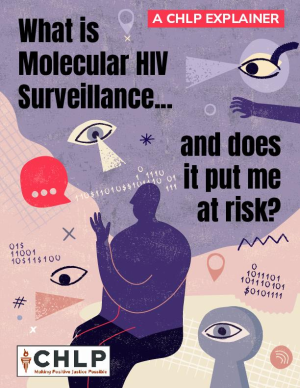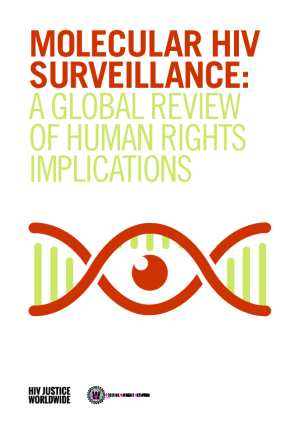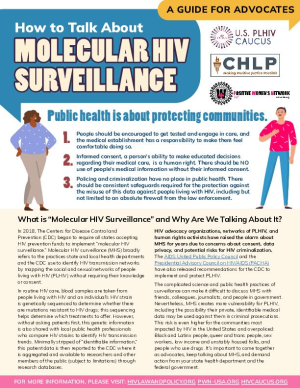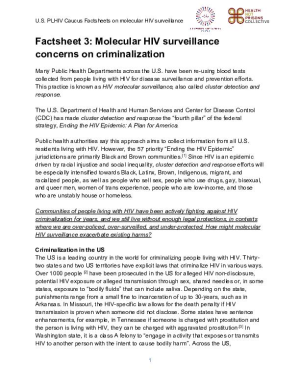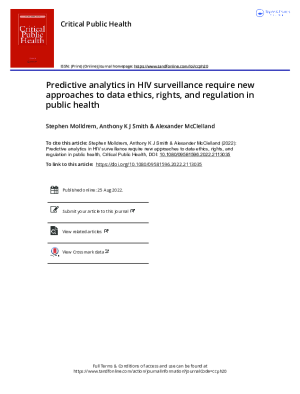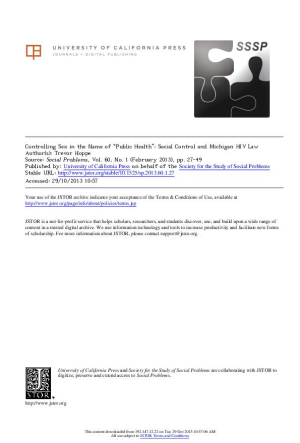This new factsheet published by CHLP delves into the practice of Molecular HIV Surveillance (MHS), outlining its framework, objectives, and the concerns it raises.
Public Health and Policy
HIV Surveillance (MHS, data collection and analysis)
Molecular HIV Surveillance: A global review of human rights implications
Provides a detailed explanation of what MHS is and how it is used across the globe, including how the technology works, where it is being conducted, and by whom. The paper describes growing human rights concerns relating to the use of this technology and goes on to list a number of recommendations for the use of MHS which were gathered from an international literature review and from members of an Expert Advisory Group.
How to talk about molecular HIV surveillance: a guide for advocates
A guide for advocates and people with HIV on how to raise concerns about MHS and speak about the issues.
Factsheet 3: Molecular HIV surveillance concerns on criminalization
Factsheet outlining the community concerns related to molecular HIV surveillance and criminalization and the potential risks to communities.
Lessons learned from community engagement regarding phylodynamic research with molecular HIV surveillance data
The widespread implementation of molecular HIV surveillance (MHS) has resulted in an increased discussion about the ethical, human rights and public health implications of MHS. The researchers narrate the process of pausing their research in 2020 to conduct community engagement in response to these growing concerns and summarize the key lessons learned through conversations with community members.
Predictive analytics in HIV surveillance require new approaches to data ethics, rights, and regulation in public health
In this commentary, the authors describe ethical problems arising from big data interventions in HIV surveillance and suggest some potential pathways for reform.
Controlling Sex in the Name of “Public Health”: Social Control and Michigan HIV Law
Found that local health officials’ interpretation of ‘health threat’ and understanding of the law varied. Indicates how public health institutions themselves may contribute to and facilitate enforcement of Michigan’s problematic HIV disclosure law. Shows that stigma and fear often drive community members to police HIV-positive neighbours’ disclosure practices.

